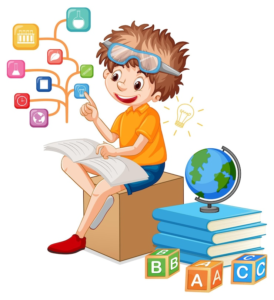
Learning Disability

Learning Disabilities: Empowering Individuals for Success
What is Learning Disabilities ?
Understanding Learning Disabilities: Unleashing the Potential Within
In the realm of education, each student possesses unique abilities and challenges. While some students excel effortlessly, others may face difficulties in specific areas of learning. Learning disabilities (LDs) are neurodevelopmental disorders that affect how individuals process information, resulting in challenges with acquiring and applying knowledge. This article aims to shed light on learning disabilities, their impact, and strategies to support individuals with LDs in their educational journey.
Learning disabilities are neurological conditions that affect an individual’s ability to acquire, process, or use information effectively. These conditions are not indicative of a lack of intelligence or motivation but rather present challenges in specific areas of learning. Learning disabilities can impact various domains, including reading, writing, mathematics, and comprehension. It is crucial to recognize and understand learning disabilities to provide appropriate support and empower individuals to achieve their full potential.
Types of Learning Disabilities
Dyslexia:
Dyslexia affects reading and language processing skills. Individuals with dyslexia may have difficulty decoding words, recognizing spelling patterns, or understanding written text.
Dysgraphia:
Dysgraphia primarily affects writing skills. It can manifest as illegible handwriting, poor spelling, and difficulty organizing thoughts on paper.
Dyscalculia:
Dyscalculia impacts mathematical abilities. Individuals with dyscalculia may struggle with number recognition, understanding mathematical concepts, and performing calculations.
Attention-Deficit/Hyperactivity Disorder (ADHD):
While ADHD is not strictly a learning disability, it commonly co-occurs with learning disabilities. It affects an individual’s ability to focus, stay organized, and regulate impulses, often leading to difficulties in learning and academic performance.
Language Processing Disorder:
Individuals with language processing disorders struggle to understand and express spoken and written language, affecting communication and comprehension.
Understanding the Impacts and Challenges
Learning disabilities can significantly impact individuals’ educational experiences, self-esteem, and overall well-being. Difficulties in acquiring knowledge at the same pace as peers can lead to frustration, anxiety, and a sense of inadequacy. Without appropriate support, individuals with learning disabilities may face challenges in academic settings, which can have long-term effects on their future prospects and quality of life.
Identifying and Supporting Individuals with Learning Disabilities. Learning disabilities can have a profound impact on various aspects of an individual’s life. Academically, LDs may result in difficulties with reading fluency, spelling, writing coherence, mathematical comprehension, and organizing thoughts. Socially, individuals may experience low self-esteem, frustration, and isolation due to perceived differences and struggles in keeping up with peers. Additionally, the emotional well-being of individuals with LDs may be affected by feelings of inadequacy and a sense of being overwhelmed.
Early identification and intervention are crucial for supporting individuals with learning disabilities. Educators, parents, and healthcare professionals play essential roles in recognizing signs and symptoms, conducting assessments, and developing tailored intervention plans. Some strategies for supporting individuals with learning disabilities include:
Supporting Individuals with Learning Disabilities:
Early Identification:
Early identification of LDs is crucial for effective intervention. Regular assessments, including psychoeducational evaluations, can help identify specific learning challenges and guide appropriate support strategies.
Individualized Education Plans (IEPs):
IEPs are tailored educational plans that outline personalized goals, accommodations, and teaching strategies to support students with LDs. Collaboration among parents, educators, and specialists is vital in developing and implementing effective IEPs.
Multisensory Instruction:
Utilizing multiple senses during instruction can enhance learning for individuals with LDs. Incorporating visual aids, hands-on activities, and auditory prompts can reinforce comprehension and retention
Assistive Technology:
Assistive technology tools, such as text-to-speech software, speech recognition programs, and graphic organizers, can provide additional support for individuals with LDs, promoting independence and accessibility.
Emotional Support:
Creating an inclusive and supportive environment is essential for individuals with LDs. Encouraging self-advocacy, providing constructive feedback, and fostering a growth mindset can nurture confidence and resilience.
Differentiated Instruction:
Adapting teaching methods to accommodate diverse learning styles and needs benefits all students, including those with LDs. Differentiated instruction involves tailoring content, pacing, and assessment methods to optimize individual learning experiences.
Conclusion
Learning disabilities present unique challenges for individuals, but with the right support, they can thrive academically and personally. Understanding the nature of LDs, early identification, and implementing targeted strategies can empower individuals with LDs to unlock their potential and contribute meaningfully to society. By fostering a nurturing and inclusive environment, we can ensure that everyone has equal opportunities to learn and grow, regardless of their learning differences.
